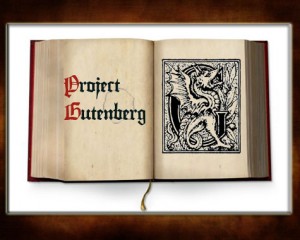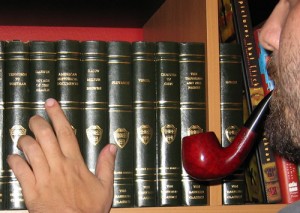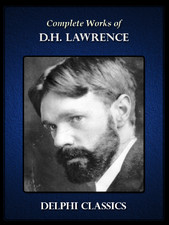 I love DRM-free books! I know that for most people, DRM is an issue they might not think about often; if their books work, they’re happy. But for many more experienced e-book users, it’s an issue to care about.
I love DRM-free books! I know that for most people, DRM is an issue they might not think about often; if their books work, they’re happy. But for many more experienced e-book users, it’s an issue to care about.
If you acquire 100 Amazon e-books and then you buy a Kobo, how are you going to read those books? If you spend years as a loyal Sony customer and then buy a Kindle, what will you do with the books you’ve bought and loved? Unless you are blessed with some technical skills—and either a country whose laws permit format-shifting, or a moral compass that doesn’t care as much about the letter of the law—you’re stuck.
Unless, that is, you buy and read books that are DRM-free. These books can be kept forever, converted using free software such as Calibre, and read on any device you might own. But where to get them? Here are some of my favorite sources:
This is the oldest e-book repository on the Web. It has over 40,000 free books, with more available through affiliates like Project Gutenberg Canada and Project Gutenberg Australia. These books are all public domain titles, but you would be shocked at what’s in the public domain these days. It’s not just Shakespeare and the Bible anymore—there are pulp sci-fi and mystery titles from the Golden Age, early issues of Scientific American and Astounding Stories, cookbooks, children’s classics (including books for very young readers, such as the complete works of Beatrix Potter) and more. Many are illustrated. Some have audio book versions. Most of the newer ones were prepared through Gutenberg’s Distributed Proofreaders program to ensure they are error-free. New books are added very frequently
Browsing can be a bit of a chore—some of the books are sorted into topical bookshelves, others are not. But if you know what you’re looking for, or stick to the ‘new release’ or ‘most-downloaded’ RSS feeds, you’re sure to find something good. And the scope of this project—their goal is to have every public domain book ever published—is incredible. This is truly an unparalleled resource, and one of the great gifts the Internet has given us.
Here are five books to get you started; I suggest downloading the HTML, as it seems to convert the cleanest.
 ♦ The Harvard Classics: The vast majority of the works in Dr. Eliot’s famous ‘five-foot shelf,’ a collection designed to give a reader a complete classical education with only the books which might fit in a single shelf.
♦ The Harvard Classics: The vast majority of the works in Dr. Eliot’s famous ‘five-foot shelf,’ a collection designed to give a reader a complete classical education with only the books which might fit in a single shelf.
♦ The Best Short Stories: A collection of themed short story collections such as ‘The Best American Humorous Short Stories’ and ‘The Best Russian Shirt Stories,’ sorted by country or origin.
♦ The Golden Treasury, edited by Francis Turner Palgrave: One of the best poetry anthologies ever published. The poetry bookshelf has some other good ones listed.
♦ Legends of the Jews by Louis Ginzberg: This series draws together Jewish myth and folklore from a variety of sources, similar to how the Brothers Grimm synthesized fairy tales from multiple sources.
♦ Wuthering Heights by Emily Bronte: My all-time favorite novel. A gothic story of the forbidden love between the beautiful Catherine and the mysterious Heathcliff.
Interested in reading the great classics but don’t want to take the time to download two dozen Dickens books, or seek out individual volumes of Sherlock Holmes stories? Do you want to read Andrew Lang’s popular Fairy Books as they first appeared with complete illustrations? Do you want to learn more about the great artists or poets, but don’t know where to start? Delphi Classics is for you!
This store is known for their lavishly illustrated complete works collections (complete works of Dickens, complete works of Austen, and so on) but lately has branched out into two new series: Masters of Art and Masters of Poetry, which, as their titles imply, present the complete works of artists and poets. These books are very well-done, with numerous illustrations, biographical information and other goodies it would take a long time to track down on your own. They’re also updated frequently—with corrections as well, with new works, as they become available.
numerous illustrations, biographical information and other goodies it would take a long time to track down on your own. They’re also updated frequently—with corrections as well, with new works, as they become available.
If you buy from Delphi’s website as opposed to the Amazon store, you can download the free updates at any time from your account. Two drawbacks:
a. Some of the files are very large, which may slow down a less robust reader.
b. Also, you have to pay separately for the .mobi and .epub versions. I tried converting a mobi version using Calibre and after 30 minutes of trying, Calibre crashed. I don’t relish paying again for an epub if I move to a Kobo Reader down the road, and I think Delphi Classics should amalgamate their editions and let their customers download a purchased title in whatever format they choose.
My five favorites:
♦ Delphi Poets: Emily Dickinson ($1.99) – Dickinson’s complete works, with bonus biographical material including Dickinson’s letters, as well as photographs and illustrations.
♦ Dickens eVolume Collection ($3.99) – The complete works of Dickens, plus biographical materials and extras, in a zipped file of 20 volumes.
♦ The Brontes – Complete Works ($2.99): The complete vollected works of all the Brontes, including their childhood writing and work by their lesser-known artist brother. Illustrated with photographs and reproductions and all the usual bonus features.
♦ Andrew Lang- Complete Works ($2.99): The complete fairy tales books, in order, plus his other short story collections, poetry, other writing and so on. As usual, illustrated with all the usual bonus features.
♦ Masters of Art – Leonardo da Vinci ($2.99): Da Vinci’s paintings in full colour, zoom-able, with bonus details. I reviewed this unique series for TeleRead earlier this year.
(Check back tomorrow for part 2.)
* * *
Follow us on Twitter @TeleRead
Join us at facebook.com/TeleRead


































What does DRM mean anyway? Sorry to ask this but I just want to understand the blog more by knowing what the mnemonic stands for.
DRM stands for digital rights management, and it means the book is protected so that the publisher can dictate things like how many times you can download it, what readers will support it and so on. A DRM-free book can be loaded into Calibre, converted and loaded onto any device. It means you *own* the file and can do whatever you please with it.
Hi,
The problem with Delphi books being unable to convert in Calibre is not because of the size of the books in megabytes, but the amount of text in them, and possibly the length of the Table of Contents.
If you have a very large volume, you could split it up into 2, 3 or 4 parts, using the EPUBSplit plugin. Then use the TweakBook function to remove the part from the HTML table of content which is not in the volume, and use the Edit TOC function to indent the reader’s TOC again. Do this for each volume you create.
Then you can convert each volume without problems.
To be honest, it seems Delphi prides itself on the sheer size o their ebooks, realizing that they can become unwieldy. A huge collection such as Dickens, Shakespeare, or Sir Arthur Conan Doyle should be supplied in two or three parts, in a ZIP-file.
Kind regards,
Kat